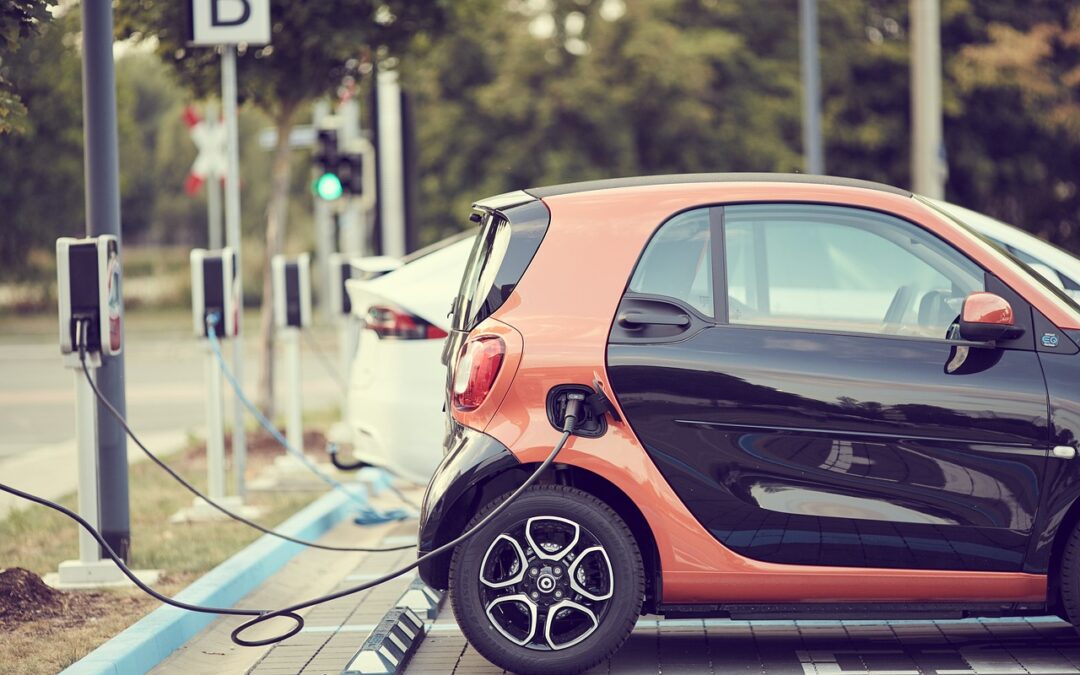Keep our news free from ads and paywalls by making a donation to support our work!

Notes from Poland is run by a small editorial team and is published by an independent, non-profit foundation that is funded through donations from our readers. We cannot do what we do without your support.
Poland has launched a new programme providing subsidies to people buying or leasing electric vehicles (EVs). The scheme offers up to 40,000 zloty (roughly €9,500) per vehicle, with the money coming from EU funds.
“We want to make it possible and easy for Polish families to buy electric cars,” said deputy climate minister Krzysztof Bolesta. “We are aware that such vehicles are the future of driving.”
Poland currently has the joint-lowest share of fully electric cars in the EU, with only 0.2% of passenger vehicles being battery-powered in 2023 compared to a figure of 1.7% across the bloc as a whole.
Bolesta said that the aim of the new programme – which is called “NaszEauto” (“OurEcar”) and launched at the start of February – is to expand uptake by subsidising purchases of EVs rather than taxing cars with internal combustion engines.
📢Program NFOŚIGW #NaszEauto to konkretne wsparcie dla rodzin i osób, które zdecydują się na zakup samochodu elektrycznego. Dofinansowaniem objęte zostaną fabrycznie nowe auta elektryczne o przebiegu do 6 tys. km.
💵Dotacja do 40 tys. zł.
➡️Zobacz jakie warunki należy spełnić… pic.twitter.com/veqp698CIM
— Ministerstwo Klimatu i Środowiska (@MKiS_GOV_PL) January 30, 2025
The initiative, administrated by the National Fund for Environmental Protection and Water Management (NFOSiGW), has a total budget of 1.6 billion zloty (€380 million) drawn from the EU’s post-pandemic recovery funds. Bolesta emphasises that this is likely to be the last such large EV subsidy scheme.
Applicants can apply for up to 40,000 zloty in financing for a new EV that has a net price of up to 225,000 zloty (excluding VAT). But the final amount will depend on several factors.
The base subsidy for an outright purchase by an individual is 18,750 zloty, with additional bonuses available. Scrapping an old combustion-engine car qualifies for an extra 10,000 zloty, while individuals earning below 135,000 zloty annually can receive a further 11,250 zloty.
Holders of the Large Family Card, which offers discounts and additional entitlements for families with at least three children, are eligible for around 30,000 zloty in base subsidy. Additionally, they can get an extra 5,000 zloty for scrapping an old combustion-engine car and 5,000 zloty for earning below 135,000 zloty annually.
For those leasing or renting an electric car, the base subsidy is up to 30,000 zloty, with an additional 5,000 zloty available for scrapping an old vehicle and another 5,000 zloty for low-income applicants.
Self-employed people can claim a grant of up to 30,000 zloty, with an extra 10,000 zloty for scrapping a combustion-engine vehicle, both in the case of outright purchase and when they lease.
The subsidy programme comes as the EU moves forward with a planned ban on the sale of new combustion-engine cars from 2035, with governments across the bloc rolling out incentives to speed up the shift towards electric mobility.
Poland has the EU's joint-lowest proportion of fully electric vehicles among all passenger cars (0.2%), new data show https://t.co/HRAV04GKat
— Notes from Poland 🇵🇱 (@notesfrompoland) August 5, 2024
Despite the former Law and Justice (PiS) government outlining in 2016 an ambition to have one million electric vehicles on Polish roads by 2025, there were only around 72,600 battery electric vehicles (BEVs) by the end of 2024, according to data from the Polish New Mobility Association (PSNM).
Commenting on the new subsidy scheme, the PSNM warns that it “will not bring a breakthrough in the market” as commercial companies, which are responsible for the majority of new car registrations in Poland, have been excluded from the support.
Jakub Faryś, president of the Polish Automotive Industry Association (PZPM), believes it is unlikely that all the allocated EU funds will be used by the deadline of June 2026, after which they will be lost.
“It is unlikely 40,000 [people] will use the scheme,” he said, quoted by Business Insider Polska. “Last year, individuals and self-employed people bought around 3,000 to 4,000 electric cars. This year, even with subsidies, it will optimistically be 5,000, maybe 6,000.”
Poland’s largest private delivery firm, InPost, has announced plans to build a network of publicly available charging points for electric vehicles.
It has already installed 200 such stations for its own fleet of electric delivery vans https://t.co/tuRIDMSp4I
— Notes from Poland 🇵🇱 (@notesfrompoland) June 17, 2023

Notes from Poland is run by a small editorial team and published by an independent, non-profit foundation that is funded through donations from our readers. We cannot do what we do without your support.
Main image credit: Kindel Media / Pexels

Alicja Ptak is deputy editor-in-chief of Notes from Poland and a multimedia journalist. She has written for Clean Energy Wire and The Times, and she hosts her own podcast, The Warsaw Wire, on Poland’s economy and energy sector. She previously worked for Reuters.



















